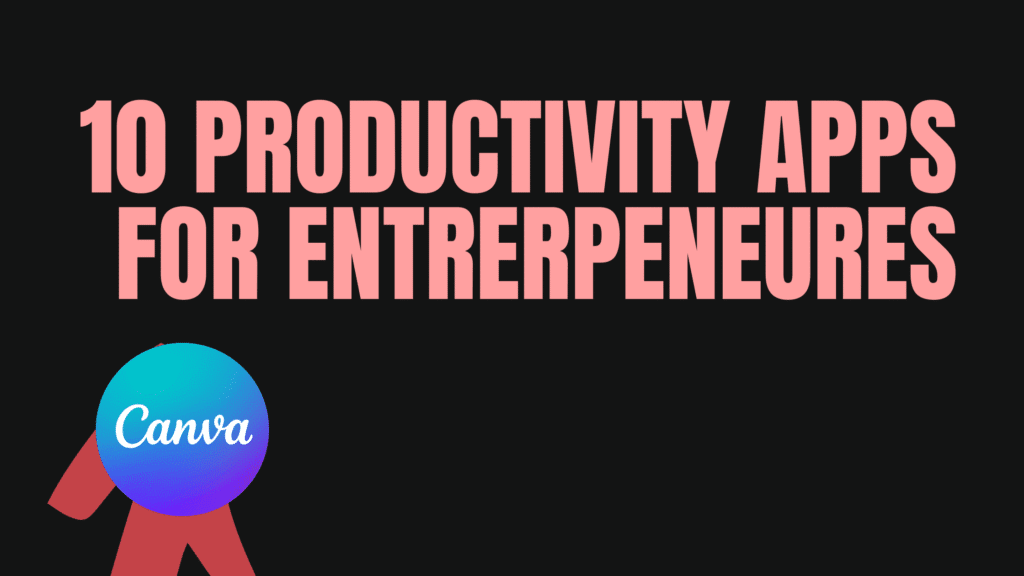
introduction
Between endless assignments, looming deadlines, and the constant ping of notifications, students today face more distractions than ever. Procrastination sneaks in, productivity dips, and burnout becomes a real threat—especially during exam season. It’s not about working harder anymore; it’s about working smarter.
That’s where this guide comes in.
In this article, you’ll discover 10 proven best productivity hacks for student-friendly tools designed to help you stay focused, manage your time, and get more done—without burning out. Whether you’re juggling multiple classes, prepping for finals, or just trying to build better study habits, these strategies will give you the edge you need to thrive academically and stay balanced.
Let’s dive in. 💡✍️
Table of Contents
Hack #1: Use the Pomodoro Technique to Stay Focused
Staying focused for long periods can be tough, especially with constant digital distractions. The Pomodoro Technique is a simple yet powerful time management method that helps you break your study time into focused intervals.
Here’s how it works:
- Study for 25 minutes (one “Pomodoro”)
- Take a 5-minute break
- After 4 Pomodoros, take a longer break (15–30 minutes)
This cycle boosts focus, reduces mental fatigue, and makes overwhelming tasks feel manageable.
🛠 Tool: Try Pomofocus (a customizable online Pomodoro timer) or TomatoTimer for a minimalist approach.
💡 Bonus Tip: Want to reduce screen time? Use a physical kitchen timer or an analog Pomodoro timer to stay fully unplugged while you study.
Hack #2: Organize Your Semester with a Digital Planner
One of the most powerful things you can do as a student is to visualize your academic life. When you can clearly see your deadlines, exams, assignments, and classes laid out in front of you, it becomes much easier to plan, prioritize, and stay ahead.
Digital planners help you avoid the chaos of last-minute cramming by giving you a bird’s-eye view of your semester. You can color-code tasks, set reminders, and break large projects into manageable steps.
🛠 Tool:
- Notion – Create your own customizable planner with task lists, calendars, and habit trackers.
- Google Calendar – Perfect for scheduling classes, exams, and study sessions with alerts.
- MyStudyLife – Specifically designed for students with rotating timetables and subject tracking.
📲 Add-on Tip: Sync your planner with your phone to receive real-time notifications and access your schedule on the go—no more missed deadlines!
Hack #3: Master the Art of Time Blocking
Time blocking is a simple but game-changing strategy where you divide your day into specific chunks of time dedicated to particular tasks or types of work. Instead of working from a never-ending to-do list, you plan exactly when you’ll do each task—giving every hour a purpose.
Why it works: Time blocking prevents procrastination, limits multitasking, and helps you stay intentional with how you spend your day. It also ensures you’re making space for both focused study and rest.
🛠 Tool:
- Google Calendar – Use color-coded blocks to schedule study sessions, classes, breaks, and hobbies.
- Sunsama – A premium daily planner that combines task management and time blocking in one.
🧠 Pro Tip: Don’t forget to block out time for meals, breaks, workouts, and social time. Rest is productive too!

Hack #4: Turn Your Phone into a Productivity Ally
Your phone can either be your biggest distraction or your greatest productivity ally—it all depends on how you use it. Instead of doom-scrolling through social media during study sessions, turn your device into a tool that helps you stay focused and accountable.
Start by using focus apps that block distractions and reward your concentration. These tools train your brain to stay in the zone and reduce the urge to check notifications every few minutes.
🛠 Tool:
- Forest – Grow a virtual tree by staying focused; if you leave the app, the tree dies.
- Focus Mode (Android) – Temporarily pause distracting apps with a tap.
- Screen Time (iOS) – Track and limit time spent on apps and set daily focus limits.
📵 Add-on Tip: For maximum focus, place your phone out of sight (and out of arm’s reach) during deep work sessions. Even having it nearby can reduce concentration.

Hack #5: Take Smart Notes, Not Just More Notes
Taking more notes doesn’t always mean learning more. What truly boosts understanding and memory is how you organize and interact with your notes. That’s where smart note-taking systems like the Cornell Method or Zettelkasten come in.
The Cornell Method helps you structure notes with clear cues, summaries, and questions, making review easier.
Zettelkasten (German for “slip box”) is ideal for long-term learning—it connects ideas across subjects, helping you think more deeply.
🛠 Tool:
- Obsidian – A powerful app for creating linked, markdown-based notes (great for Zettelkasten).
- Notion – Ideal for organizing subjects, assignments, and Cornell-style notes in one workspace.
- GoodNotes – Perfect for handwritten notes on iPads, with tagging and search features.
🧠 Bonus Tip: Always summarize notes in your own words after class or while reviewing. This helps cement the material in your long-term memory far better than just copying slides or writing verbatim.
Hack #6: Automate Repetitive Study Tasks
Repetitive tasks—like rewriting notes, checking grammar, or making flashcards—can eat up valuable study time. The smart move? Batch or automate them so you can focus more on learning and less on busywork.
Automation isn’t just for tech pros—it’s about using simple tools to do the work for you. Whether it’s generating flashcards, proofreading essays, or summarizing pages of notes, a few clicks can save you hours each week.
🛠 Tool:
- Quizlet – Quickly create or auto-generate flashcards and practice with smart quizzes.
- Grammarly – Instantly correct grammar and spelling in essays, emails, and class discussions.
- ChatGPT or Notion AI – Use it to summarize long lecture notes, brainstorm ideas, or simplify difficult concepts.
💡 Example: Paste your lecture transcript or class notes into an AI tool and ask for a bullet-point summary or key takeaways. You’ll get a quick, clear version to review later.
Hack #7: Limit Multitasking – Use Tab Management
Multitasking might feel productive, but research shows it actually reduces focus, lowers memory retention, and increases mental fatigue. For students juggling online classes, research, YouTube tutorials, and chat apps—it’s a recipe for distraction overload.
Instead of keeping 20+ open tabs and switching between them, use a tab manager to stay organized and mentally clear. Fewer tabs = fewer decisions = better concentration.
🛠 Tool:
- OneTab – Collapses all your open tabs into a single list to restore later, reducing clutter instantly.
- Toby – Organize tabs into visual collections by subject, project, or task. Great for long-term use.
🧠 Pro Tip: Group your tabs based on what you’re currently working on—like “Essay Research,” “Math Practice,” or “Class Notes.” Close everything else while you focus.
Hack #8: Create a Distraction-Free Study Environment
Even with the best intentions, distractions can creep in from every corner—cluttered desks, noisy backgrounds, endless app notifications. The key to deep focus is designing an environment that helps your brain stay in study mode.
Start by removing physical clutter and keeping only what you need within reach. Then, tackle digital distractions by blocking apps, websites, or even the entire internet during study hours.
🛠 Tool:
- Cold Turkey – Blocks websites, apps, and even your entire computer for a set time. Great for serious focus sessions.
- Freedom – Syncs across devices to block distractions on your phone, tablet, and laptop simultaneously.
🎧 Bonus Tip: Wear noise-canceling headphones and play lo-fi or instrumental study playlists (like “Chillhop” or “Study with Me” on YouTube) to boost focus and drown out background noise.
Hack #9: Track Your Progress and Stay Accountable
Consistency is the secret ingredient to success—but it’s hard to stay consistent if you’re not tracking your progress. Whether it’s study hours, completed assignments, or healthy routines, keeping a simple log helps you stay motivated, spot patterns, and adjust early when things start slipping.
Habit tracking isn’t just about checking boxes—it’s about building momentum. And when you can see your streaks growing, it fuels your drive to keep going.
🛠 Tool:
- Habitica – Turns your habits into a game where you earn rewards and battle monsters by completing tasks.
- TickTick – Combines to-do lists, calendars, and habit tracking all in one place with a clean interface.
📅 Add-on Tip: Set aside 10–15 minutes each weekend for a “weekly review.” Look back at what you accomplished, what you struggled with, and plan your top 3 priorities for the next week.
Hack #10: Learn to Say No to Protect Your Time
One of the most powerful productivity skills you can develop as a student isn’t found in an app—it’s learning to say no. Between group projects, club meetings, social invites, and part-time jobs, it’s easy to become overcommitted and overwhelmed.
Saying no doesn’t mean being rude—it means respecting your time, energy, and academic goals. Boundaries protect your focus and prevent burnout.
🧠 Mindset Tip: Your time is your most valuable currency. Spend it intentionally on what aligns with your priorities.
🛠 Tool:
- Use pre-written polite responses (e.g., “Thanks for thinking of me, but I have to focus on a deadline this week.”)
- Google Calendar – Block off study hours or “do not disturb” time so others can see you’re unavailable.
🧩 Bonus Tip: The more often you say no to distractions, the more time you’ll have to say yes to meaningful growth, rest, and deep work.

Conclusion
🎓 Conclusion: Small Habits, Big Results
When it comes to productivity, it’s not about pulling all-nighters or overloading your schedule—it’s about consistency. Building small, repeatable habits over time beats short bursts of intense effort every time. Even just 25 focused minutes a day can move you miles ahead when practiced daily.
The key is to find what works for you. Not every hack or tool will fit your study style—and that’s okay. Test them out. Mix and match. Adjust as your needs change.
✨ Want a head start? Download our free Printable planner for plan your week with ease and productivity
Your future self will thank you.
if you are a entrepreneur then check our another post productivity hacks for entrepreneur.
